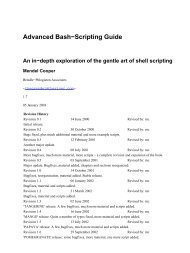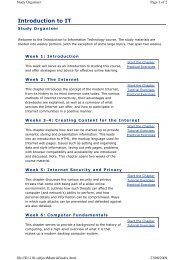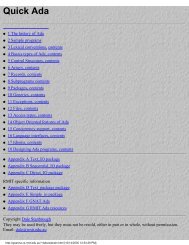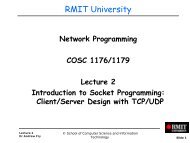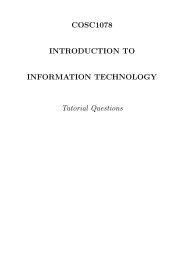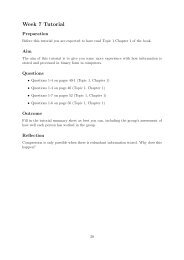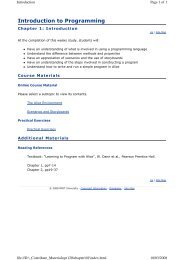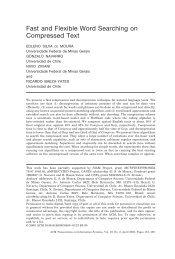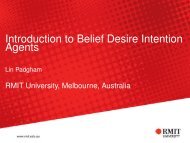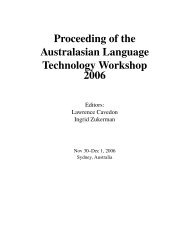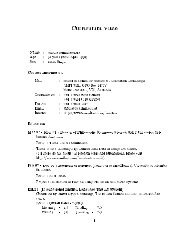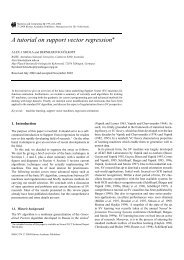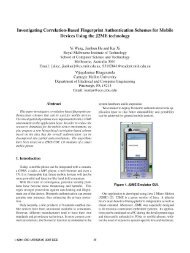The MBC information booklet - RMIT University
The MBC information booklet - RMIT University
The MBC information booklet - RMIT University
You also want an ePaper? Increase the reach of your titles
YUMPU automatically turns print PDFs into web optimized ePapers that Google loves.
Chapter 14: Frequently asked questions<br />
14.13.2 What is the<br />
Staff Student<br />
Consultative<br />
Committee<br />
(SSCC)?<br />
78<br />
the contacts for your program. Alternatively, you can email:<br />
pgadmin@cs.rmit.edu.au. Your identity will be kept confidential.<br />
This is an informal committee that meets, on average, three times each semester. SSCC<br />
meetings involve students and relevant staff - including the program advisors, Teaching<br />
and Learning Advisors and the Program Leader. All Computer Science Postgraduate<br />
students are invited to attend these meetings and will usually be sent an emailed invitation<br />
directly to their student account.<br />
SSCC meetings provide students with an excellent opportunity to meet with the program<br />
staff and to provide valuable input in order to help improve the quality and delivery of<br />
programs and services.<br />
Students are strongly encouraged to use this forum to give voice to issues that have not<br />
been satisfactorily dealt with after attempts at direct consultation with the lecturer/tutor or<br />
to give voice to issues that are considered by the students to be too sensitive to mention<br />
directly to a lecturer.<br />
Anonymity is ensured and protected. Lecturers will not know the names of the<br />
students who make comments at SSCC meetings.<br />
A link to dates and minutes of these meetings as well as student representative details and<br />
<strong>information</strong> on how to feedback are obtainable from the CSIT SSCC page at:<br />
http://www.rmit.edu.au/csit/sscc<br />
14.14 Computer Accounts and System Issues<br />
14.15 Computer Languages<br />
14.15.1 What<br />
Computer<br />
Languages do<br />
I need to<br />
know?<br />
See “System Help” on page 100.<br />
Remember NEVER to allow someone else to use your account and do not give your<br />
password to anyone. Check the “Last login” date and time that appears as soon as you log<br />
in. If you suspect someone may know/guess your password change it IMMEDIATELY. It is<br />
also good to change your password regularly.<br />
You should also read the School’s Acceptable Use Policy to familiarise yourself with<br />
security and privacy issues:<br />
https://inside.cs.rmit.edu.au/rules/acceptable-use.shtml<br />
Students undertaking the Master of Technology (Information Technology) (MC062), Master<br />
of Technology (Internet and Web Computing) (MC063), Graduate Diploma in Software<br />
Development (GD055), or Graduate Diploma in Internet and Web Computing (GD059) will<br />
be provided foundations towards their chosen study area.<br />
Students undertaking the Master of Applied Science (Information Technology) (MC061)<br />
should have deep knowledge of C and Java under Unix.<br />
If you are a GD055 GDipSD or MC062 MTechIT student you may wish to consider doing<br />
an extra course - COSC1321 Computing Fundamentals. It provides instruction on<br />
fundamental conceptual building blocks and C language programming. It is particularly<br />
useful for those students from non-computing backgrounds.<br />
It is important that you check the prerequisites for each course with the formal<br />
course guide via:<br />
http://www.rmit.edu.au (select ‘courses’ from the drop-down list, then type the course code<br />
or title into the search box to locate the course guide).



